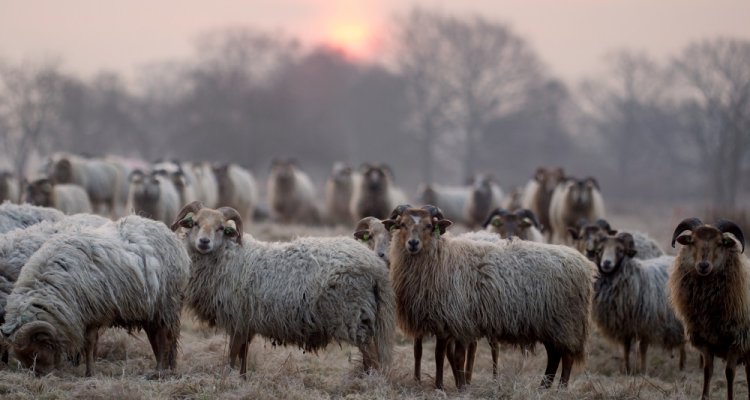
Expertise and advice on animal resources
Dutch farmed animal breeds produce food (milk, meat, eggs) and provide services. Heath sheep, for example, are used for nature management and shepherd dogs help herd these sheep. Some 90% of the originally Dutch breeds are rare.
The Centre for Genetic Resources, the Netherlands (CGN) advises breed societies, social organisations, companies and the Dutch government on the conservation and sustainable application of genetic diversity in farmed animals.
The diversity in animal breeds is a unique living cultural heritage and well worth conserving
Sustainable breeding programmes
CGN advises breed societies on the development of sustainable breeding programmes and the conservation of diversity within the breed. We carry out population analyses using available pedigree or DNA data. These analyses provide the breed societies with a basis to further develop their breeding programmes and allow CGN to select animals for its genebank. Breeding companies can contact us for advice.
To support the advise on breeding programmes, CGN developed three infographics to explain the concept of inbreeding, the related consequences and how to deal with this, they can be found on the page Breeding wisely.
Policy and regulations
CGN provides policy advice to the Dutch Ministry of Agriculture, Nature and Food Quality (LNV) and international organisations such as the UN’s Food and Agriculture Organization (FAO) and the European Commission. CGN has partnerships with colleagues in European networks, with social organisations in the Netherlands such as the Dutch Rare Breed Survival Trust (SZH), and with the breeding industry.
Cryo-conservation and reproduction
Reliable cryo-conservation methods and protocols are essential to ensure the quality of the genebank material. CGN develops and improves methods for the cryo-conservation of sperm, embryos and oocytes of various animals. In addition, we research the fertilisation capacity of frozen material to validate cryo-conservation methods.
Breed characteristics and genetic variation
CGN uses DNA research to analyse the genetic diversity within breeds and genebank collections. This allows us to map the genetic traits of the breeds as well as the total genetic variations within breeds and animal species.
DNA test for breed identification
CGN developed a DNA test for rare cattle breeds to determine the breed of animals without pedigree information. When test results show that the cattle belong to a certain breed this can be included in the studbook.